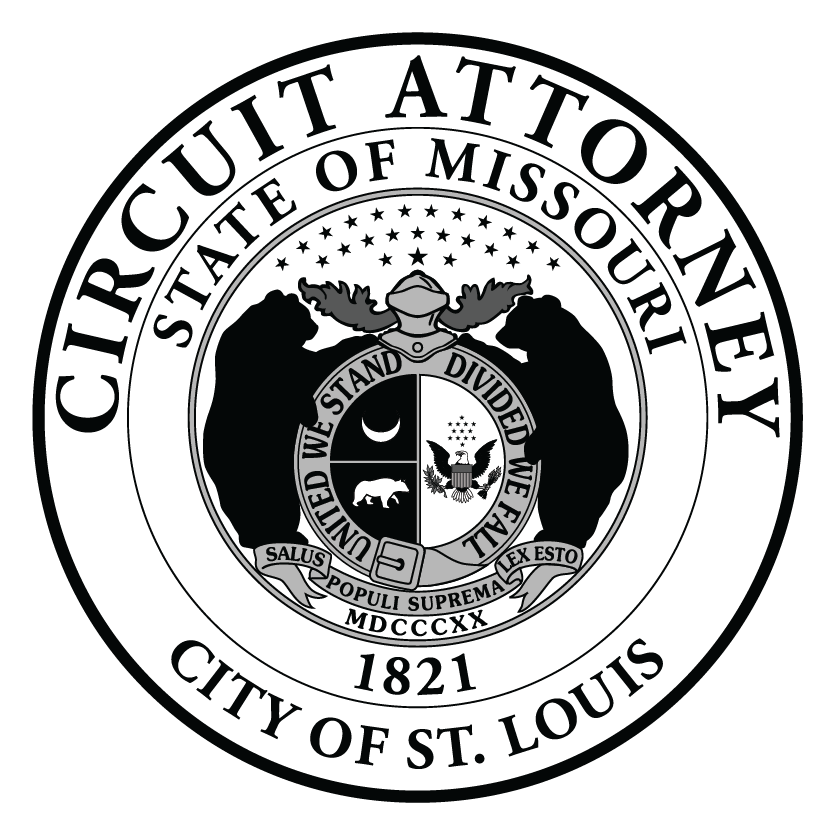Victim Services
Victim Services
Victim Services was established in the City of St. Louis in 1979. We are a not-for-profit agency dedicated to assisting all victims of crime within our jurisdictional boundaries. We are a unit within the St. Louis Circuit Attorney’s Office, thereby offering a unique and compassionate place for victims of crime to receive information, support and assistance.
Our office provides all services FREE of charge. This is made possible through city funds and grants. These funding resources enable us to continue our mission.
Our Mission
Victim Services is dedicated to assisting crime victims with the aftermath of violent crimes and acts as a liaison between victims and the criminal justice system.
Witnesses
If you witness a crime, call the St. Louis Police and report it to them. If charges are filed, it is important that you assist the Circuit Attorney's Office with the case. The information you provide is very important.
Victims
If you are the victim of a crime, it is important that you report it to the St. Louis Police Department as soon as possible.
As a victim, you have rights. Our Victim Services Unit is here to assist you throughout the process.
Call Victims Services at (314) 622-4373
"Safety Exit"
Note the button on the lower right of our website. It's a "safety exit" button and is designed to help users quickly exit the website and navigate to a safe or neutral page in case they are in a situation where they need to conceal their online activity. This feature is often found on websites related to sensitive topics such as domestic violence support, mental health resources, or other situations where a user might need to quickly leave a website without arousing suspicion.
When clicked, it redirects the user to a different, innocuous website, such as a weather or a shopping site, to help protect the user's privacy and safety.
In many cases, websites that deal with sensitive topics or provide support for vulnerable individuals include a "safety exit" button as part of their commitment to user safety and privacy.
Case Management Program
This program is designed to help victims of crime understand the many complexities of the criminal justice system, while providing emotional support and advocacy through the duration of the criminal case in the St. Louis Circuit Attorney’s Office. This program was designed to prepare the victim for the emotional stress that is common when involved in the criminal justice process while ensuring the victim’s rights are protected.
When a criminal case is issued on a violent felony or when a victim requests services an Advocate Caseworker will automatically be assigned. This Advocate Caseworker will be the primary contact person and will notify the victim regularly of upcoming hearings and any changes in the case. Victims are entitled to appear at any and all court hearings the defendant is and if desired, the Advocate Caseworker will escort them. The Advocate Caseworker will also help locate community resources, provide emotional support, safety planning, crisis intervention and if applicable, assist the victim in completing a Crime Victims’ Compensation application.
Volunteer Program (VIP)
This program is designed to train graduate and undergraduate interns from local universities about prosecution-based victim services. Interns will be in charge of case management and appropriate research projects. Interested interns are encouraged to contact our Volunteer Coordinator for more details, interviews and training schedules. A limited number of interns are accepted each semester.
Community volunteer opportunities are also available to interested individuals who are not currently enrolled in an approved university program. Volunteers are involved in case management, research, evaluation and clerical functions in the office. For more information, contact our Volunteer Coordinator.
Counseling
The Victim Services program has free, confidential counseling available to victims of domestic and sexual violence. Victims of these crimes can be overwhelmed with confusion and fear. Short-term counseling can help victims begin to recover from painful events, develop healthy coping strategies, practice self-compassion and learn self-regulation. Victims will receive recovery tools that can restore balance, a greater sense of safety and more hope for the future. Interested victims can contact their Advocate Caseworker for more information.
The Victim Services Unit will not discriminate against any victim, employee, colleague, allied professional or member of the public on the basis of race, ethnicity, color, national origin, language, sex, gender, age, sexual orientation, social class, ability, economic status, education, marital status, religion, substance use, health status or HIV status.
Victims Rights are Guaranteed by the Missouri Constitution
These rights are granted automatically to all victims of dangerous felony crimes.
If you were a victim of a non-dangerous felony crime, or a victim of a misdemeanor crime, you must request that your rights be observed.
You can do this by contacting the Prosecuting Attorney/Circuit Attorney in your region.
You Have The Right:
- To receive information about the crime and decision regarding the filing of charges.
- To be informed about Missouri Crime Victim Compensation, receive claim forms and apply for compensation; be informed about financial, emergency and crisis intervention services in your community.
- To be present and heard at all criminal justice proceedings at which the defendant has such a right.
- To be informed in a timely manner of court dates, continuances, and final outcomes of all court hearings.
- To be provided with a secure waiting area during court proceedings.
- To reasonable protection from harm and/or threats.
- To participate in criminal justice proceedings without being discharged or disciplined by an employer.
- To be informed of procedures to apply for and receive any witness fees.
- To have property returned once there is a final outcome of a case, and to have a reasonable explanation if it cannot be returned.
- To appear at a sentencing and make an oral and/or written victim impact statement.
- To be notified if the defendant escapes, is released, or dies.
- To be informed about restitution and to ask the defendant to pay restitution.
Helpful Links
Contact Information
All Rights Reserved | Circuit Attorney's Office, City of St. Louis









